An MP called for Britain to follow the example of other countries and put up an AIDS memorial – only to be invited to Brighton to see ours.
Stewart Malcolm McDonald, the SNP member for Glasgow South, said: “To my shame, I had no idea that this was the case until I met my two friends from the International Radical Pink Fairies and the Sexual Avengers last week – is that there is no AIDS memorial anywhere in the UK.
“I was in Berlin at new year and it has one. There are AIDS memorials in Washington DC, New York, San Francisco – all over North America and in different parts of Europe.”
At this point in the debate Hove MP Peter Kyle rose to his feet and Mr McDonald said: “The honourable member for Hove is now going to tell me that there is one in Brighton.”
Labour MP Mr Kyle said: “I invite him to come and visit Brighton where in New Steine there is a very beautiful memorial designed by an architect called Romany Bruce.
“It is one of the most beautiful testimonies to love and to the legacy caused by the AIDS/HIV epidemic.
“We meet at it regularly to hold vigils and to celebrate the life of the gay community in Brighton and Hove.
“I invite the honourable gentleman to come down at his earliest opportunity to see it for himself.”
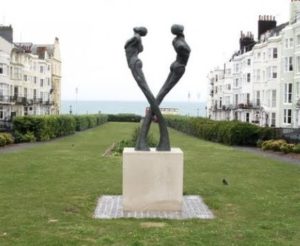
When she was Home Secretary, the Prime Minister Theresa May visited the memorial with her fellow Conservative, Simon Kirby, the MP for Brighton Kemptown.
Mr McDonald told Mr Kyle: “The honourable gentleman has bagged himself a Scotsman for the weekend. I cannot wait to come and see it.
“Having spent some time in his constituency two years ago – I hate to say that it was washed out by rain the entire time in the middle of August – I know it is indeed an excellent place for LGBT people.”
Mr McDonald then called for a national memorial in the capitals of England, Scotland, Wales and Northern Ireland.
He said: “We need a national memorial. The London Assembly has recently had a debate on that issue and has agreed to establish one and I hope that Sadiq Khan will take that forward.
“Not to be political, I have a different view of what the nation is so I would like to see one in Scotland and I do not see why there cannot be memorials in Cardiff and Belfast, too.
“It strikes me as slightly odd that none of our major cities have one.
“I do not want to cause any offence – I have perhaps just lost my invitation to the constituency of the honourable member for Hove.
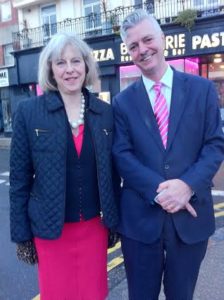
“It is bizarre that in London, Edinburgh, Belfast and Cardiff there is no acknowledgment of the AIDS crisis and what it means to the LGBT community. Although it does not affect only our community, it is undeniable that it had a massive impact.”
Earlier in the debate on LGBT History Month, another SNP member, Richard Arkless, who represents Dumfries and Galloway, said: “Being gay or transgender is not an affront to any person or to anyone’s religion. The only affront left is for those who still hold those prejudiced views.
“The real panacea for LGBT equality is the day when there is no need for a distinct community, when we do not even think it worth mentioning and when there is no need for debates such as this.
“I long for the day when the Backbench Business Committee would laugh at such an application for a debate because the issue had been consigned to history and was not worthy of discussion.”
Mr Kyle told fellow MPs in Westminster Hall: “The honourable gentleman is making an incredibly important point.
“I am an openly gay Member of Parliament but all through my campaign my sexuality was never mentioned.
“Does the honourable gentleman agree that it is more empowering than people might realise for young people to find out that somebody is gay and for that to be the fourth, fifth or sixth thing that they have heard about that person?”
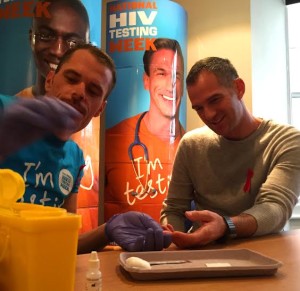
Mr Arkless said: “I completely and wholeheartedly agree … The point where it becomes completely normal and is not even worth mentioning is the panacea to be reached.
“Society is not quite there yet but I am proud to say that I am. When I leave here today, I will not have any gay or transgender friends – I will just have friends.”
Mr McDonald shared quotations from a debate in the House of Commons in 1966 that led to the decriminalisation of homosexuality 50 years ago.
He said that it was worth reading through Hansard – the parliamentary record – if “you fancy a laugh at the past”. He said that some of the comments made him wince.
Mr Kyle said: “The honourable gentleman refers to 1966 but many of us can remember similar comments made very recently.
“In all of the debates in this place about legalisation on the age of consent, gays being able to serve in the military and the abolition of section 28, similar and worse comments have been made.
“Rather than dismiss them as part of a bygone era, it is important that we recognise that they are still representative of people’s views in wider society.
“That is why events such as today, marking LGBT History Month, and challenging and engaging with such views in order to shape them is incredibly important as well as reflecting on the historical aspect.”
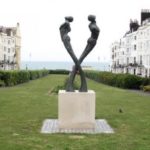
Mr McDonald said: “The honourable gentleman is absolutely right. We can laugh at some of this stuff but in reality I did not have to go back to 1966 to find such views. We could probably take a walk around some of our constituencies and find some of these views.”
Mr Kyle said: “Not in Hove.”
Mr McDonald said: “Perhaps not in the honourable gentleman’s constituency. I accept that. Let us not pretend that the progress that we celebrate is universally celebrated across the country.
“I want to mention a few of the key elements in UK history. In the 1950s, the Wolfenden Committee was formed after a succession of well-known men were convicted of indecency which called into question the legitimacy of the law.
“Its report recommended that homosexual behaviour be legalised which was rejected at the time by the government.
“The Sexual Offences Act 1967 decriminalised sex between two men over 21 and in private but that did not extend to the merchant navy, the armed forces, Scotland, Northern Ireland, the Channel Islands or the Isle of Man.
“It has to be said that Scotland was, to an extent, dragged kicking and screaming to catch up with our counterparts south of the border in this regard. It was in 1980 that sex between two men over the age of 21 and in private was decriminalised in Scotland.
“In 1992 the World Health Organisation declassified same-sex attraction as a mental illness.

“In 1999 the European Court of Human Rights unanimously found that the investigation into and subsequent discharge of two personnel from the Royal Navy on the basis of their sexual orientation was a breach of their right to a private life under article 8 of the European Convention on Human Rights.
“That historic ruling is what causes so many LGBT people across this country great concern about the government’s plans on European human rights as we move forward next year. There is a lot floating around about how the Prime Minister wishes to see that legislation go.”
“In 2000 the ban on lesbians, gay men and bisexual people serving in the armed forces was lifted under a Labour government – that was a great achievement of the Labour government.
“I do not want to be partisan but let us not forget that they went to court to try to prevent that from happening.
“From 2004 onwards we started to move into an era when civil partnerships became legalised. We now have full equality of marriage under the law in Scotland, England and Wales.
“Northern Ireland always feels a wee bit left out. It is the last place on these islands that still does not have same-sex marriage.
“An issue I am campaigning on along with the excellent organisation Freedom to Donate and the All-Party Parliamentary Group on Blood Donation is that of gay men giving blood.

“At the moment, I do not believe that our policy reflects modern science. I welcome the government review that is taking place at the moment and I hope that the report that we aim to produce by the middle of this year goes some way to informing its conclusions.
“I would like to see a system in which we say to people, ‘If you can safely give blood” – there are millions of men who have had sex with men across this country who can – ‘you should be able to do so.’ That is something I would like to see progress on.”
Equalities Minister Caroline Dinenage said: “Members here today have articulated beautifully how far we have come but also how far we still have to go.
“LGBT History Month gives us an opportunity to reflect on and celebrate the numerous achievements in furthering LGBT equality and the numerous individuals and groups who have brought them about.
“It is also an opportunity for us to take a moment to remember that there is still much more that we can do.
“LGBT equality remains a subject of great importance for the government. I am incredibly proud to serve as the minister responsible for LGBT policy. It is a role I take very seriously.
“We are committed to exploring all avenues in eradicating barriers that prevent anybody from achieving their full potential and living full, happy and healthy lives.

“The honourable member for Glasgow South mentioned the fear that some people – particularly some members of the LGBT community – have about Brexit.
“In these uncertain times, it is really important to stress that the government are firmly committed to maintaining protection of LGBT people during and after the process of leaving the European Union.”
The Conservative minister added: “The hard-earned progress that we have made in so many areas must not be eroded. We are proud that the UK has some of the strongest equality legislation in the world and want to continue to address discrimination in all its forms.
“Relevant EU directives and European Court of Justice judgments have already been incorporated into domestic law through the Equality Act 2010.
“We have begun to provide a strong framework to ensure that the UK is well positioned to continue to drive forward LGBT equality post-Brexit.
“On legislative protection, we aim to maintain stability and continuity for the LGBT community. The government have made a clear commitment that all protections in equality legislation will continue to apply once the UK has left the EU and there will be no going back on that commitment.”
To read the full hour-long debate on LGBT History Month, click here.

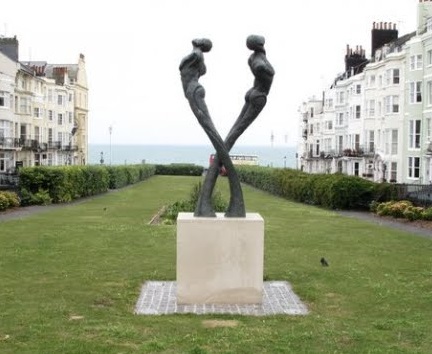







doh!s